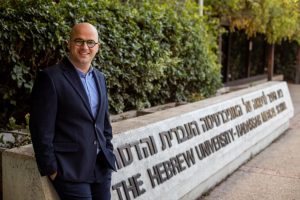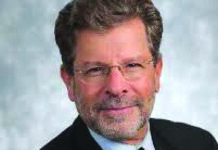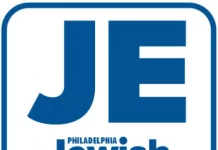
Since 2018, the Philadelphia Eagles’ Autism Foundation has given out millions of dollars in grants each year. Before 2023, all of the recipients were based in the United States.
But now one of those grants, worth $400,000, is going to an Israeli professor at Hebrew University, Haitham Amal.
Amal, a pharmacologist, has researched autism since 2015 when he was a post-doctoral student at the Massachusetts Institute of Technology. He was the first to show that nitric oxide is involved in autism pathology. His goal is to try to inhibit that with therapeutics, he said. The grant will allow him to hire more researchers, expand his hypothesis and accelerate his experiment. Within two years, he hopes to publish two more papers on the issue of autism and therapeutics, he added.
The Eagles Autism Foundation is “dedicated to raising funds for innovative research and care programs,” according to its website.
“By providing the necessary resources to doctors and scientists at leading institutions, we will be able to assist those currently affected by autism as well as future generations,” the site reads.
Eagles’ owner Jeffrey Lurie, who is Jewish, started the foundation because he has dealt with autism in his family, according to philadelphiaeagles.com.
“I have to say thank you to Mr. Jeffrey Lurie, who is doing great work and giving great effort to the autism field,” Amal said.
“Since launching the Eagles Autism Challenge in 2018, we have raised more than $20 million and funded 83 research projects and community grants,” Lurie said in a news release provided to the Jewish Exponent. “In many ways, 2022 was a record-setting year for the Eagles Autism Foundation, but we know there is more work to be done. We look forward to expanding on our mission and assisting even more families with the help of our community, fans, partners and supporters.”
When Amal started researching autism eight years ago, he “fell in love,” he said. It was a field without “a lot of pharmacology and drug development, and this is what I am,” the professor added. As he further explained, “I’m a pharmacologist that knows how to look into a disease and how to find therapeutic targets, and to treat these targets pharmacologically.”
Amal discovered that there’s an elevation of nitric oxide in the brain and blood samples of autistic children, so he started trying to find therapeutics. He is collaborating with a publicly-traded American company, and he has his own startup, Point6Bio, which uses blood samples from autistic children and artificial intelligence models to identify autism through a sample test.
The professor first applied for a grant from the Eagles in 2021. Rachel Sigman, the Philadelphia director for American Friends of the Hebrew University, had read an article in Philadelphia Magazine about Lurie’s new philanthropic endeavor. Sigman knew Amal and was familiar with his work, so she contacted to the Eagles on his behalf. The organization invited the Israeli to apply, but he did not make it to the second round, according to Sigman. But she stayed in touch with the organization, and Amal was invited to apply again two years later. This time, he got it.
“I felt he’s really made tremendous progress in the research that he’s done,” Sigman said. “The idea of finding a way to diagnose autism using blood samples — the importance of that I thought was going to really have a transformational effect in the way kids are diagnosed. This is something that’s going to have a positive and potentially global impact.”
Amal believes the grant from the Eagles will not only help his research but “open the doors for collaboration all over the world.” A small amount of money would have allowed Amal to investigate one mutation. But there are hundreds of mutations in autism, and a $400,000 grant will help the Israeli look into different ones. Experiments and big data analyses are “expensive,” he said.
“The goal of this grant is to understand the role of nitric oxide in the autism spectrum disorder,” he said. “The ultimate goal of this grant is to level up drugs and therapeutics for treatment.” ■






